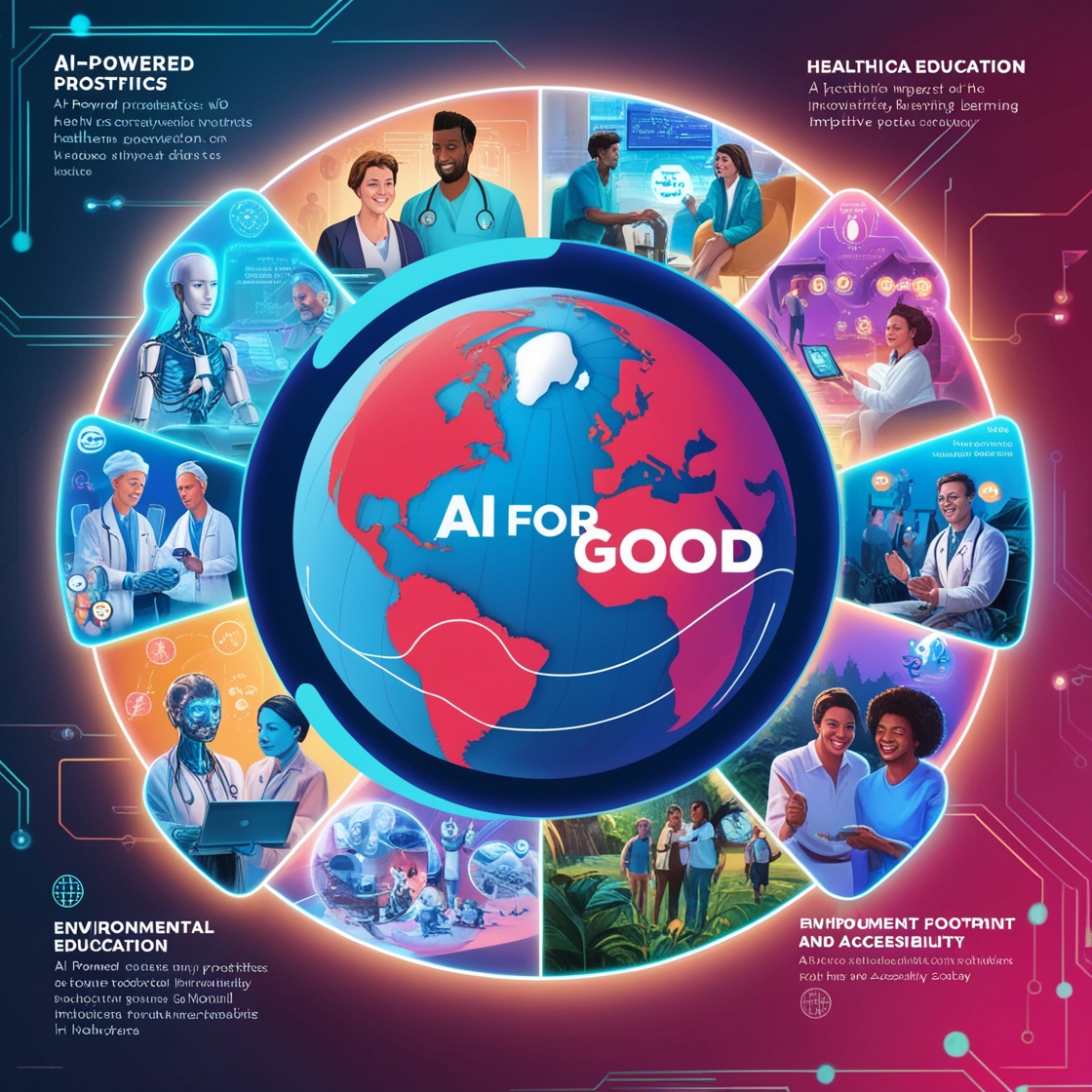Introduction
AI is no longer just a sci-fi fantasy; it’s transforming the world in profound ways. When harnessed for good, artificial intelligence can solve complex problems, improve lives, and drive progress like never before. But what exactly does “AI for good” mean? Simply put, it’s the use of AI technologies to create positive social impact while adhering to ethical principles.
AI in Healthcare
Early Disease Detection
AI-powered diagnostic tools can detect diseases like cancer and heart conditions in their early stages, potentially saving millions of lives.
Personalized Treatment Plans
Machine learning algorithms can tailor treatment plans based on a patient’s unique health data, improving success rates.
Drug Discovery Acceleration
AI expedites the process of discovering new drugs, reducing the time and cost needed to bring new treatments to market.
AI in Education
Personalized Learning Experiences
Adaptive learning platforms powered by AI can customize lessons based on a student’s learning pace and style.
Bridging Educational Gaps
AI helps provide quality education in remote or underprivileged regions through virtual learning platforms and automated tutoring.
AI for Environmental Sustainability
Climate Change Prediction
AI systems analyze climate data to forecast weather patterns and predict natural disasters more accurately.
Wildlife Protection
AI-powered drones and camera traps help track and protect endangered species from poaching and habitat loss.
Energy Optimization
AI optimizes energy consumption in buildings and factories, contributing to a greener planet.
AI in Humanitarian Aid
Disaster Response and Management
AI tools assist in real-time disaster mapping and resource allocation during crises.
Predicting and Preventing Crises
Predictive models can identify potential conflicts or food shortages, enabling early intervention.
AI for Accessibility
Tools for the Visually Impaired
AI-powered apps like Seeing AI help visually impaired individuals by describing their surroundings and reading text aloud.
Enhancing Communication for the Hearing Impaired
Speech recognition tools provide real-time captions and sign language translation, breaking communication barriers.
AI in Ethical Business Practices
Reducing Bias in Hiring
AI can anonymize resumes to minimize hiring bias and promote diversity.
Enhancing Transparency and Accountability
AI tools can track supply chains, ensuring fair trade and ethical sourcing practices.
AI for Smart Cities
Traffic Management
AI systems manage traffic flow, reducing congestion and emissions in urban areas.
Crime Prevention and Public Safety
AI-powered surveillance systems can detect suspicious activities and help law enforcement respond more effectively.
Challenges and Ethical Considerations
Data Privacy
AI systems often rely on vast datasets, raising concerns about data security and personal privacy.
Bias and Fairness in AI Models
Bias in training data can lead to unfair outcomes. It’s crucial to develop unbiased algorithms and regularly audit AI systems.
Conclusion
AI has incredible potential to make the world a better place. From saving lives in healthcare to protecting the planet and promoting equality, its positive impact is undeniable. However, responsible development and ethical usage are key to ensuring AI benefits everyone.
FAQs
1. How can AI help in the medical field? AI assists in disease detection, personalized treatment, and drug discovery.
2. Is AI being used for environmental protection? Yes, AI helps predict climate patterns, protect wildlife, and optimize energy use.
3. What role does AI play in education? AI personalizes learning experiences and bridges educational gaps worldwide.
4. Can AI help in humanitarian crises? Absolutely! AI aids disaster response, crisis prediction, and resource allocation.
5. How does AI support accessibility for disabled people? AI provides tools like visual assistance apps and speech recognition for better accessibility.
